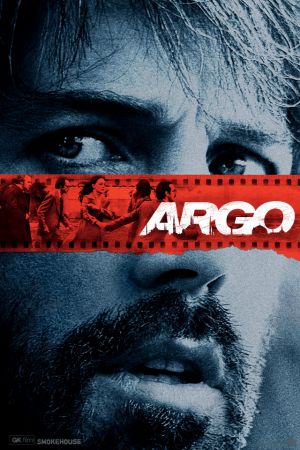- Comics
- Comics Reviews
- Manga
- Comics Reviews
- European Comics
- News
- Comics News
- Press Releases
- Columns
- Spotlight
- Digital Comics
- Webcomics
- Cult Favorite
- Back Issues
- Webcomics
- Movies
- Toys
- Store
- More
- About
By Hervé St-Louis
November 11, 2012 - 10:18
Argo tells the story of how the Central Intelligence Agency (CIA) worked with the Canadian Government to retrieve American embassy personnel at the onset of the 1979 Iranian revolution against the Shah of Iran whom part of the population accused of being collusion with the British and the American. CIA agent Tony Mendez crafted a story about a fake science fiction movie to be shot in Iran as an excuse to extirpate the American embassy personnel who were being hosted secretly at the home of the Canadian ambassador in Iran, in Teheran. The movie also marks a return for director and main actor Ben Affleck, but is the movie historically accurate?

Having studied this period of history to improve my comprehension of material for my master’s thesis on Iran and Twitter, I was disappointed by the callous handling of historical facts for the purpose of telling a captivating audience that played to all the cues necessary to get a couple of Oscars later this year. Affleck, in the role of Mendez, crafted a well-contained story that at once created a personal conflict for Mendez, hinted at bureaucratic politics in the United States government, played on the relationships of the American captives in Iran, and tried to show the side of the Iranian insurgents in the context of world politics. Oh, he also showed somewhat the perspective of the Canadians who took risks to support the American refuges, albeit that’s one of the problems with the film.
Throughout the film, which premiered in September at the Toronto International Film Festival, it felt like Affleck was screaming at the academy about how good and smart he was and why he deserved an Oscar for his troubles and career which he self-sabotaged with a series of bad films. He was playing the comeback kid to such an extent, that he felt the need to play the lead and heroic role and adorn the movie’s poster. Argo was more about the reinvention of Affleck as a middle-age actor and director who will no longer play physical action hero like his buddy Matt Damon. Now, just like Brad Pitt a few years earlier, and Robert Redford decades before both, he is now branding himself as a cerebral actor and director. He wants to be taken seriously. Therefore he crafts movies that play on all the senses and anguish of the audience, and reinforce their clichés about Iran, instead of offering an opportunity to understand why they rebelled against the Shah.
Were I not a comic book and an animator, I would criticize Affleck’s portrayal of the anger of the Iranians as a cartoon capsule presented as an oversimplified storyboard in the movie’s introduction. Since I know darn well, that comic books and storyboard can tell profound stories of complexities that can match any medium, I’ll just disparage Affleck’s introduction for what it is. It is a clumsy way, using the metaphor of the storyboard and film theatrics to relate the history of the Iranians to the general theme of the movie. It’s as if while doing his research, he stumbled upon Marjane Satrapi's Persepolis and wanted to include some of her mojo in his film to elevate it. Again, I say Affleck plays for the crowd and the academy. The choices he makes with Argo are all meant to wow viewers and film elites, and promise them that if they support his work, that they will prove to be as smart, clever and talented as he is.
Parts of the decisions made by Affleck concern the escape from Teheran on a Swissair flight. BY magic, and somewhat contrary to official accounts, the Iranians finally figured out the ploy and chased on old jeeps the Swiss plane taking off from Teheran’s airport. It felt like Raiders of the Loss Ark or that scene from the Simpson parodying the former, where homer chases Bart Simpson through the house and Bart escapes from his father just in time. Homer is left behind jumping around like an oversized monkey swearing revenge. Affleck created the same scene in Argo, except this time, the pure and innocent Americans were the ones escaping the barbaric Persians. And just to cleanly close every plot thread, he lets us know that the Iranian housemaid who worked at the embassy, who was possibly betraying her countrymen, also escaped to Iraq safely. Not allowing any plot point to be left dangling, is part of Affleck’s way to prove how clever he is and how he works to entertain and merit accolades.
Argo is built like a historical thriller, whose ending most people entering the theatre knew beforehand. Yet, his interpretation of event, like the diminished contribution of the Canadians to the escape, means his version of that history is the one that will be viewed and contemplated on in the future. This is important, because one of the film’s thesis is that what really happened was shrouded with secrets and that Affleck’s film was finally revealing the whole story. What Affleck really revealed was the heroic version of the film that would allow him to have a decent standing in the noble court of Hollywood. Argo is not history.
Rating: 8.5 /10